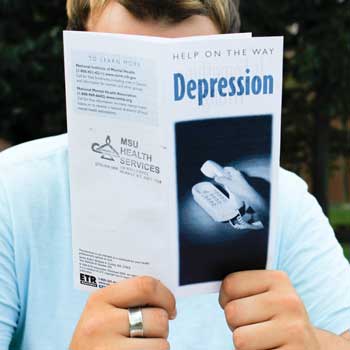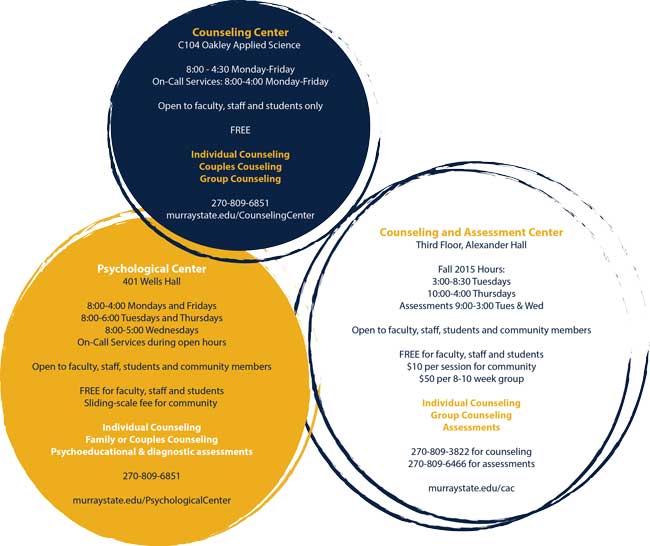Story by Kayla Harrell, Contributing writer

Located in Alexander Hall, Murray State has opened a third counseling center to help the University community.
Murray State opened its third counseling center in fall 2014, located in Alexander Hall, to provide more resources for students, staff and faculty who deal with mental health issues.
“There are usually not enough mental health counselors or professionals who conduct assessments in a small community like Murray,” said Kristin Douglas, counseling clinic coordinator and counselor. “We can help provide mental health services and assessment services at a very affordable price.”
Angie Trzepacz, director of Murray State counseling services and psychologist, said the Counseling and Assessment Center is a dedicated training center for graduate students in their programs who are required to complete practicums and internships in order to complete the requirements for their degrees.
The training graduate students interact with students, faculty, staff and community members.
“Graduate students can serve as a ‘breath of fresh air’ and provide perspectives from first-hand experience about how challenging college can be when you are trying to juggle more than just school,” Douglas said.
Students at Murray State “experience the full range of psychological difficulties that we see in the larger community, from problems of adjustment to serious psychological disorders,” said Laura Liljequist, director of Murray State Psychological Center and psychology professor.
“I had a friend who struggled with depression,” said Alia Chowdry, sophomore from Murray. “Going to a counselor a couple days a week really helped [her].”
Students facing these types of issues have many different counseling options on campus at their disposal.
“For people who have never gone to counseling and are anxious about it, we try to go out to transitions and other freshman classes to explain how it all works,” Trzepacz said.
Murray State has three facilities offered to students, staff and faculty that allow mental health to be treated professionally: the Counseling Center in Oakley Applied Science Building, the Psychological Center in Wells Hall and the Counseling and Assessment Center.
“There’s a myth that if you go to the Counseling Center, you have to wait two weeks to see someone – that’s not true,” said Don Robertson, vice president of Student Affairs. “There’s always one counselor during the day that has no set appointments. They’re there just to see walk-in traffic.”
Both the Counseling Center and Psychological Center provide on-call services for students with a crisis or emergency.
“Sometimes people need to get to counseling services in a moment’s notice,” said Kyle Schenck, junior from Boston, Kentucky.
He said some students across campus knew Murray State provided on-call counselors but did not know the duties of these counselors.
“I think the biggest barrier to students getting help is simply being aware of the resources and finding their way to one of the three counseling centers on campus,” Liljequist said.
In case of an emergency after hours and during weekends, on-call counselors are provided through Public Safety and Emergency Management.
“Day time on-call is any issue someone is having, whether a crisis or just needing to talk to someone,” Trzepacz said. “Night time on-call is only for emergencies.”
Along with the on-call counselors, two of the facilities offer assessments. The Psychological Center’s assessments are for psychoeducation and diagnostic uses.
“The earlier the issues are addressed, the better we can help,” Robertson said. “Any of the places you can go to are going to provide very effective counseling. If you need immediate help, there is always someone there for you.”



























































































